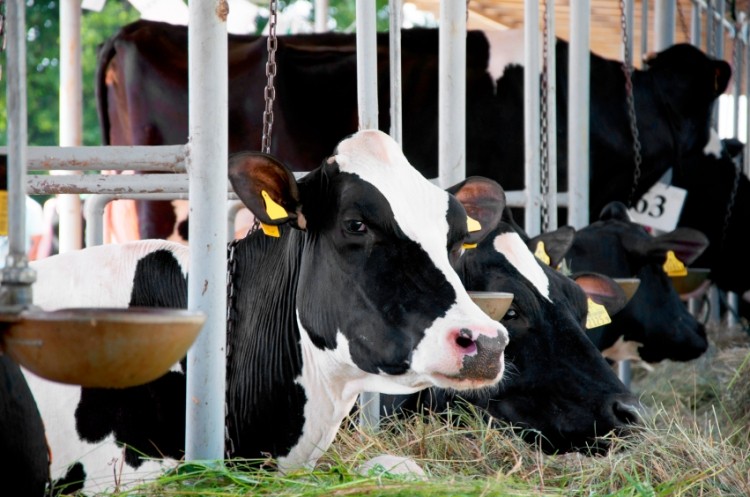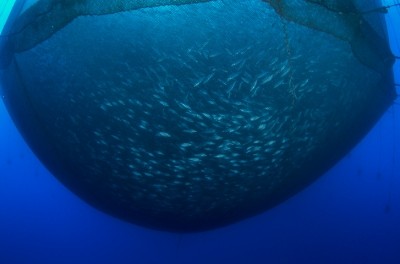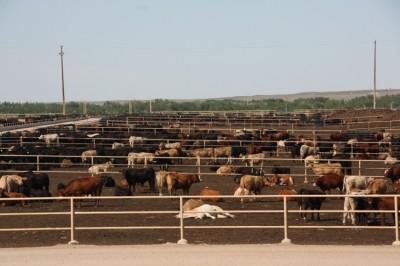Study finds little impact of two yeast additives on rumen fermentation, but hike in efficiency of nutrient use

Writing in the journal of Animal Feed Science and Technology, the animal scientists said the apparent total tract fiber digestion and microbial CP flow were not affected by either yeast culture studied.
The researchers, based in the US and South Africa, had set out to determine effects of the two S. cerevisiae yeast based feed additives [Diamond V's yeast culture XPC and Cenzone Tech's produt, Yeasture] on dry matter (DM) intake, whole tract apparent digestibility, rumen fermentation, body condition score (BCS), milk yield and milk composition of lactating Holstein dairy cows in order to determine if it is beneficial to include these additives in such diets.
"Results show an increased energetic output with both DFM products, suggesting an increase in efficiency of nutrient use, but that the mechanisms by which production was influenced differed between products; with the YST DFM primarily affecting NE output due to a potential increase in post ruminal GI tract health leading to an increase in post ruminal nutrient absorption while XPC may have had a small increase in microbial CP flow due to improved coupling of protein and energy utilization in the rumen," noted the authors in the study.
The work is part of an ongoing project to independently track how effective different dairy feed additives are, said lead researcher Peter Robinson, cooperative extension specialist in dairy nutrition and management with the University of California, Davis.
The prevailing theory about yeast supplements was that they had an effect on the rumen, he told FeedNavigator. However, the more recent research may be suggesting that they work as a probiotic outside of the rumen, he said.
Moving forward from this work, there could be value in focusing more specifically on what yeast products do outside of the rumen, said Robinson.
Why yeast products?
There are multiple yeast-based products for cattle, noted the authors, with claims made about their use include improving feed intake, rumen fiber fermentation, feed efficiency, rumen pH and digestion, and rumen microbial protein synthesis.
With concerns over antibiotic resistance in livestock, they continued, the search is on for safe, high quality and efficacious feed inputs with an increasing focus on ‘natural’ alternative additives such as direct fed microbial’s (DFM) like yeast cultures and essential oils (Patra, 2011), and how they can be used to improve efficiency of animal production, whether by improving rumen fermentation, decreasing methane production, reducing nutritional stressors such as acidosis and bloat, or improving post rumen gastrointestinal (GI) health with the overall objective of increasing the health and productivity of dairy cows.
Yeast and yeast-based products are some of the oldest additives used in dairy production, he said. “They don’t tend to have the negative connotations in the minds [of consumers] that others have, because they’re natural occurring,” added Robinson.
However, though direct fed microbials are common dairy feed additives worldwide, due to the variability in animal responses and introduction of new additives, continuing research is needed to demonstrate their efficacy, wrote the authors.
Experiments
In the experiment, 945 cattle were given one of three diets for a period of 28 days, said the researchers. The diets included a control diet, a diet mixed with a yeast culture (XPC) at 14g/cow per day and the third test diet was a different yeast-based product Yeasture (YST) at 10g/cow/day.
The entire experiment lasted for 12 weeks with each four week period offering an adaption period followed by sample collection in the last week, they said. Yeast products tested are commercially available.
On day 27 of each trial period urine samples were collected, said the researchers. On day 28 blood, fecal and milk samples were taken and a body condition score was given.
Manure samples were checked for dry matter, ash, aNDFom, crude protein, starch, lignin and acid detergent fiber, they said. Milk was assessed for fat, true protein, lactose and somatic cell counts.
Results
Cows getting the YST diet had an increase in milk true protein, lactose and energy outputs and tended to produce more milk fat than control group cows, said the researchers. Cows on the XPC diet saw no change to milk production.
However, some factors were not altered by the treatments including total tract apparent digestibility of ash-free neutral detergent fiber and starch and microbial CP flow out of the rumen, they said. Body condition scores were the same for all three diets.
Levels of essential amino acids in the plasma tended to be higher with the YST supplement – predominantly based on levels of threonine, tryptophan, valine and histidine, they said. “Although total plasma non-essential amino acids (NEAA) did not differ with YST feeding, there was an increase in concentrations of glycine (P = 0.04), asparagine (P = 0.03), tyrosine (P = 0.05), serine (P = 0.07), proline (P = 0.06) and taurine (P = 0.07),” added the researchers.
No changes in levels of amino acids were seen with the other experimental diet, said researchers. But with both supplements there was additional NE output.
There were no changes to DM intake with the supplements, but both tended to reduce apparent total tract digestibility of OM and crude protein, they said.
Source: Animal Feed Science and Technology
Title: Effects of two yeast based direct fed microbials on performance of high producing dairy cows
DOI: doi:10.1016/j.anifeedsci.2016.03.003
Authors: H.C.vdW. Leicester, P.H. Robinson, L.J. Erasmus













